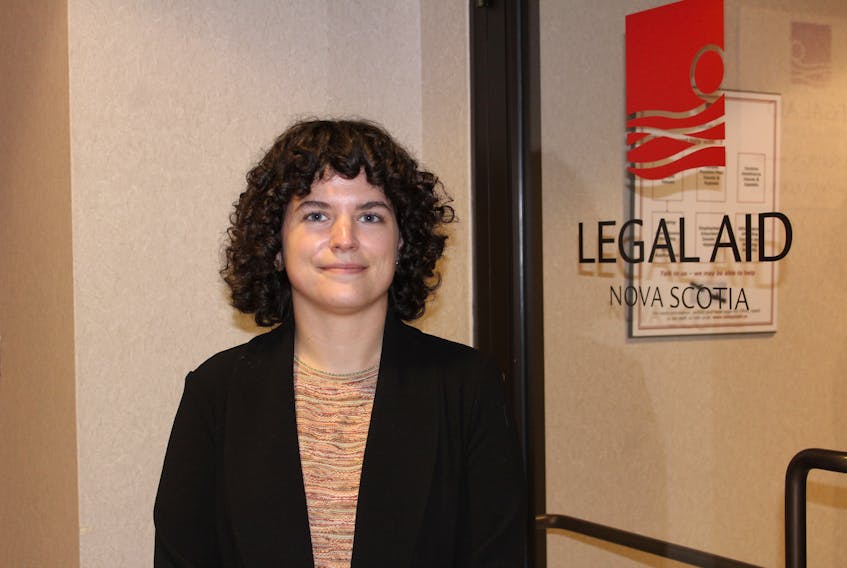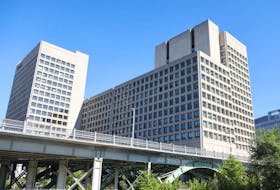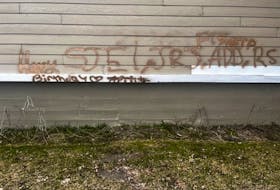SYDNEY, N.S. — Nora MacIntosh says she believes that housing security is at a crisis level in the Cape Breton Regional Municipality, with increasingly unaffordable and substandard housing.
Cape Breton’s social justice support worker with Nova Scotia Legal Aid has been on the job for about six months. While the four core areas covered under MacIntosh’s position are housing security, income security, Canada Pension Plan disability and employment insurance issues, by far the issue taking up the bulk of her time is housing concerns.
“I would say somewhere between 60 to 75 per cent of the cases I have are housing-related issues,” MacIntosh said.
The people seeking out her help are reporting housing that is in desperate need of repairs, have widespread rodent infestations and the failure by landlords to address those issues.
“I also find tenants who are in these situations that find themselves not wanting to speak up for fear of losing the only housing that they have,” MacIntosh said.
Tenants are often hesitant to get municipal bylaw enforcement officials involved because they fear the buildings they live in may be deemed uninhabitable once the conditions are discovered.
“There’s nowhere to live right now. It’s crisis level across the CBRM because we’re seeing low-income individuals in these situations where they’re not living in adequate housing but there’s no other options.”
The problem is a general lack of affordable housing, MacIntosh said, and increased competition for what housing there is due to higher student numbers at Cape Breton University. The result is some landlords increasing rents and renting out apartments by the room rather than by the unit, MacIntosh said.
“They’re charging two, three, four, five times as much rent for an apartment that otherwise might have been accessible to a family, for example.”
MacIntosh hasn’t yet had any international students come to her looking for assistance, but she has heard anecdotally from other community organizations she works with that many of them are facing similar challenges.
While public housing could potentially be an option for some lower-income tenants, MacIntosh said the local housing authority is overwhelmed, with a several-year waiting list.
While there is currently a pilot project that allows a rent subsidy to go with the tenant rather than the private landlord’s unit, MacIntosh is concerned that if it is discontinued it will leave the tenant in circumstances which they can no longer afford.
“I’m finding, a lot of clients, there’s just nowhere to go,” she said. “I’ve had a couple of clients who are the brink of essentially becoming homeless because their current rental situation is so bad.”
In addition to providing some advocacy to clients who are dealing with the housing authority, a primary avenue for many others ends up being the Residential Tenancy Board, for which MacIntosh also provides support. That venue has its pros and cons, she said, noting that while it is a way for tenants to air out their issues, there seems to be a general lack of awareness of tenants’ rights. Also, if there is a dispute over an immediate concern such as heat being shut off, the process may not be able to provide immediate relief, although it can provide for people some compensation after the fact.
In other fields she covers, such as CPP disability, MacIntosh said she has seen instances where having someone to assist early on in the process could have been really be helpful and she’s seeing cases where it could have made a significant impact in the ultimate outcome if that legal intervention had been made earlier. She said that speaks to the need for such a service in the region that existed prior to the creation of the position. MacIntosh has been doing some outreach with other service providers in the community to let their clients know the service is now available.
The social justice worker position is a pilot program. It was supported by a grant from the Law Foundation of Nova Scotia.
In order to become a client of MacIntosh, you must apply through legal aid. The agency has two offices in Cape Breton — the Sydney office can be reached by phone at 902-563-2295, toll-free 1-877-563-2295; while the Port Hawkesbury office can be reached at 902-625-4047, toll-free at 1-888-817-0116.
“If it sounds like a social justice problem, apply, and we will let you know,” MacIntosh said.









